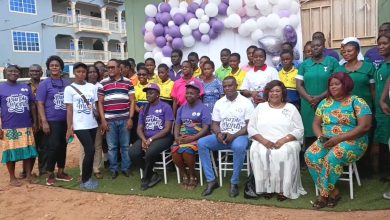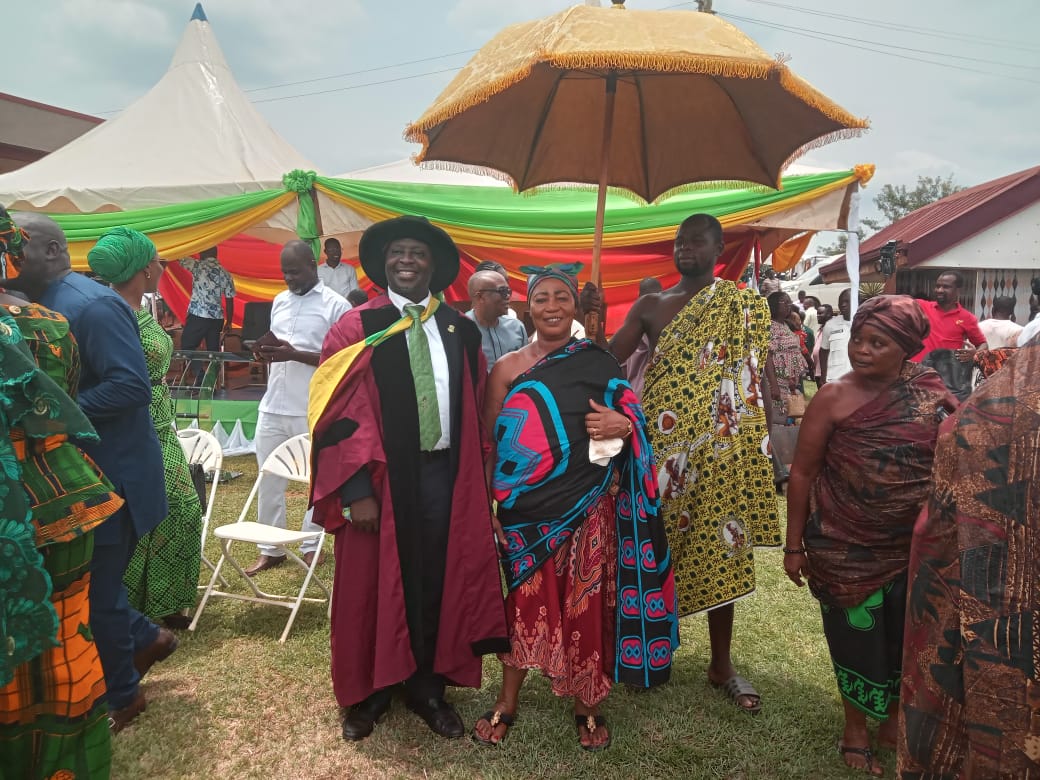Teachers at Japandu DA Primary Cry for Infrastructure Support as Rainstorm Rips Off Kindergarten Classrooms
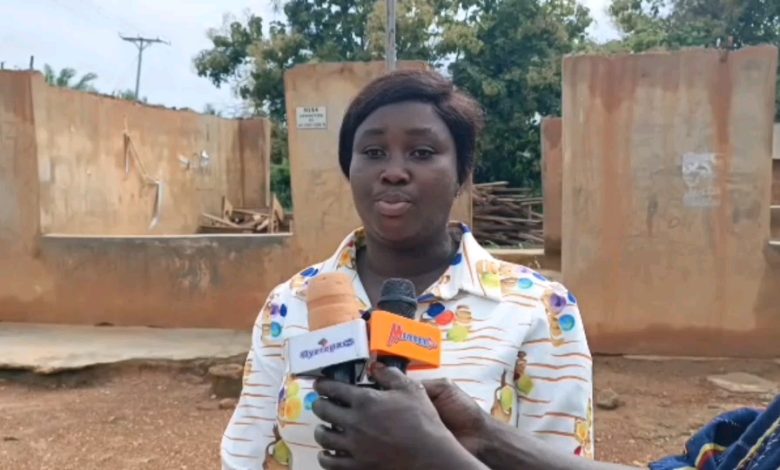
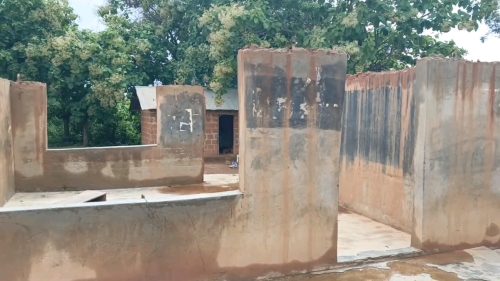
The Japandu D/A Primary School, located in the heart of the Bosome Freho District in the Ashanti Region, is facing an education emergency following a violent rainstorm that tore off the roofs of three critical kindergarten classroom blocks. The storm, which occurred several weeks ago, has rendered the classrooms unusable, leaving young children and their teachers with no proper shelter for teaching and learning.
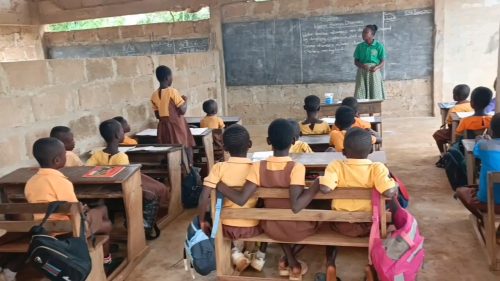
Currently, classes are being held under trees and in incomplete structures with no windows, doors, or proper flooring. The situation has disrupted the academic calendar and created unsafe conditions for both students and teachers, many of whom now risk exposure to weather, illness, and injury simply to keep school running.
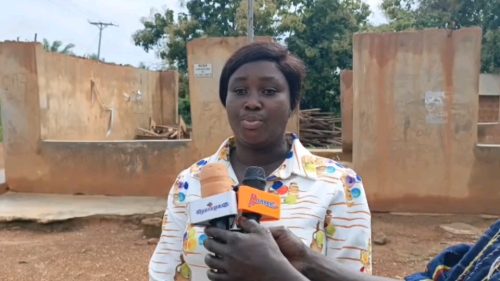
Head teacher Madam Linda Asumaning, in an emotional interview, expressed deep concern over the deteriorating state of the school. “Our school has been thrown into chaos. Pupils now sit on the bare ground under trees to learn. When it rains again, there’s no choice but to suspend all lessons. It’s heartbreaking,” she lamented.
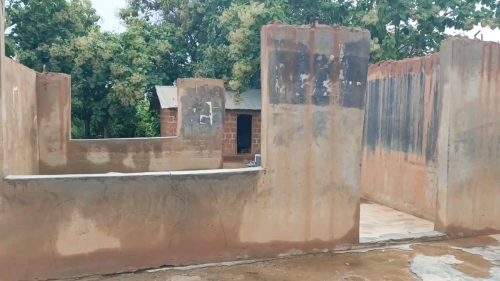
She further revealed that appeals have been made to both district and regional education authorities, yet no tangible response has been received. “We have written letters, made calls, and even reached out to some NGOs, but there’s been no help. We are on our own,” Madam Asumaning said.
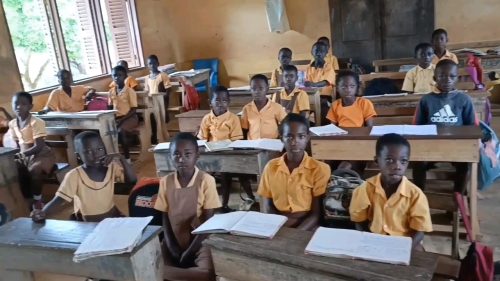
The school was already operating with limited infrastructure—insufficient desks, lack of teaching aids, and an absence of a proper fence. The rainstorm has now exacerbated these problems, threatening to collapse the entire academic system in the community.
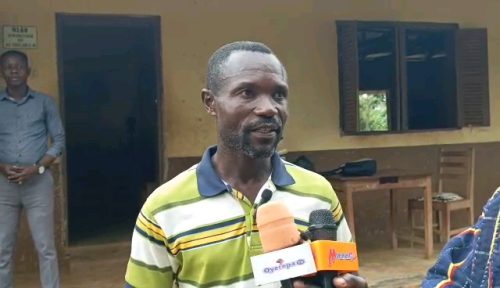
The Chairman of the School Management Committee (SMC), Mr. Frank Agyekum, is also rallying for urgent support. Speaking passionately, he stated, “We are calling on the government, the Bosome Freho District Assembly, NGOs, corporate bodies, and private individuals to come to our aid. The future of our children is at stake. Education is their only hope out of poverty.”
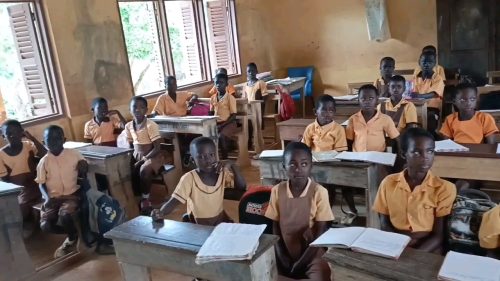
Mr. Agyekum added that the community is willing to support rebuilding efforts with communal labor if materials and technical assistance are provided. “We’re not just asking—we’re ready to contribute what we can. But we need roofs, furniture, and learning materials,” he stressed.
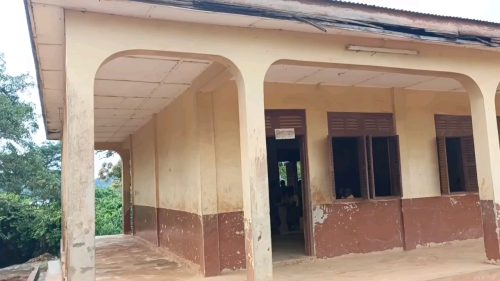
Parents and guardians in Japandu are equally distressed. Many say the school has been neglected for years despite repeated calls for support. One parent, Madam Esther Konadu, expressed her fears: “This is the only school our children have. If it collapses, our children’s future collapses with it. Some may never go to school again.”
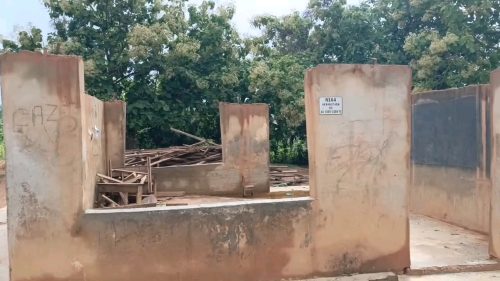
Others worry about the psychological impact on the children, who now associate school with discomfort, exposure, and uncertainty. Community leaders fear the situation may lead to a rise in school dropouts and poor academic performance.
Calls are growing louder for the Ministry of Education, Ghana Education Service (GES), and the District Chief Executive for Bosome Freho to immediately intervene. Stakeholders suggest that temporary pavilions or tents could be provided as a short-term measure, while the government and NGOs mobilize resources for long-term reconstruction.
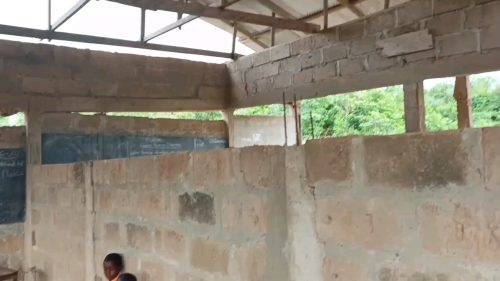
The community of Japandu is united in its plea: they are not asking for luxury—they are demanding the basics: a roof over their children’s heads, safe classrooms, and a fair chance at education.
As the rains continue in the Ashanti Region, the people of Japandu watch the skies not with hope, but with fear—fear that the next downpour could erase even the little learning still happening in their devastated school.


